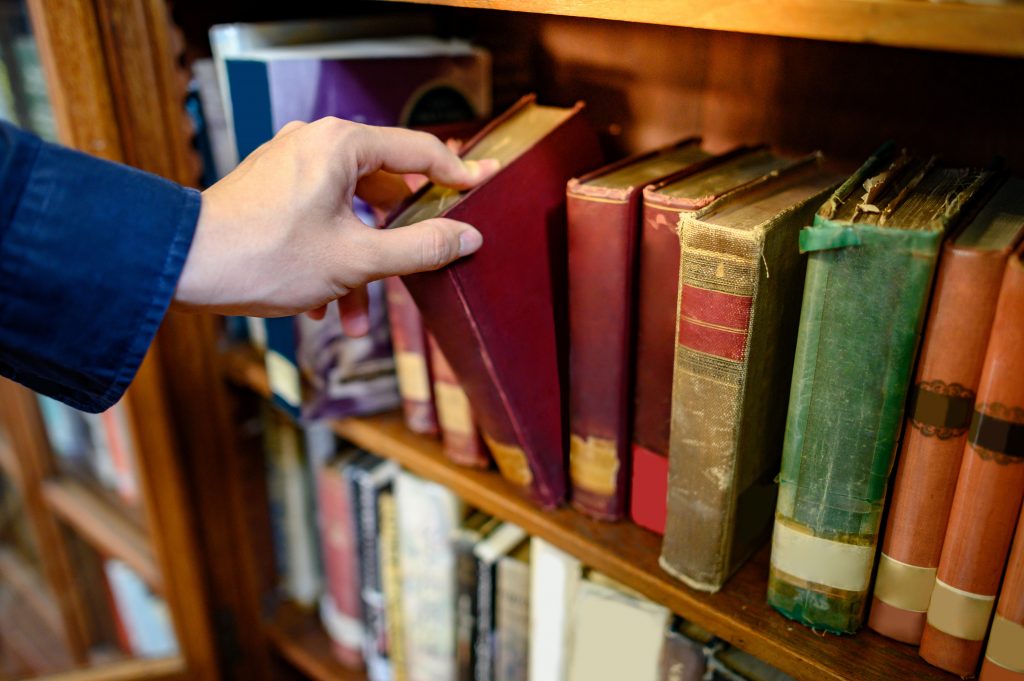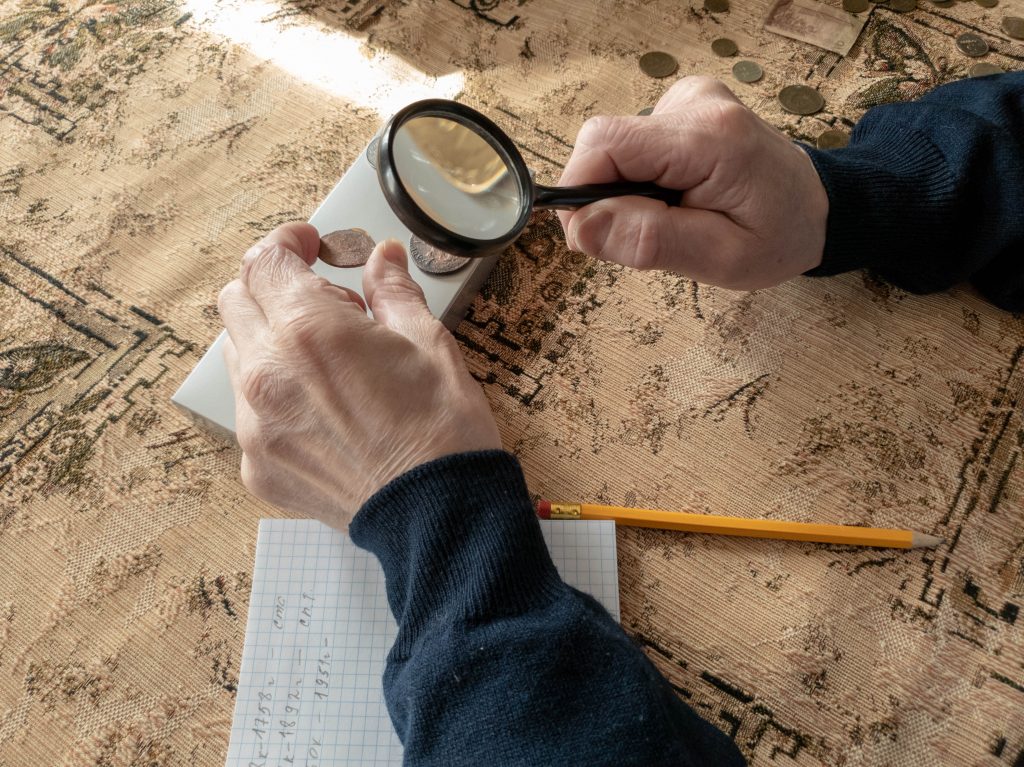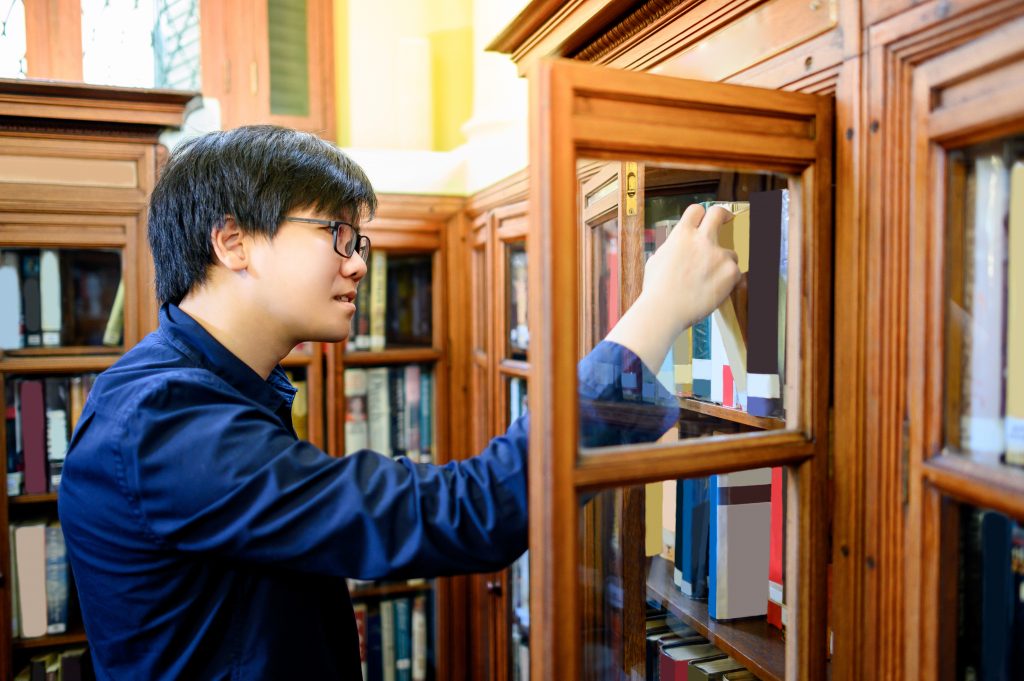 If you’re a history buff, you might want to consider a career as a historian. But before you become a history major, you should know what historians do.
The Bureau of Labor Statistics (BLS) classifies historian as a social sciences job. The BLS lists it among other careers such as economist and psychologist. But a historian is a different kind of job. You not only spend time studying the past, but you also look at how the past impacts the future.
Read on to find answers to the questions what is a historian and what do they do?
If you’re a history buff, you might want to consider a career as a historian. But before you become a history major, you should know what historians do.
The Bureau of Labor Statistics (BLS) classifies historian as a social sciences job. The BLS lists it among other careers such as economist and psychologist. But a historian is a different kind of job. You not only spend time studying the past, but you also look at how the past impacts the future.
Read on to find answers to the questions what is a historian and what do they do?
What is a Historian?
A historian is a person who analyzes, interprets, and researches the past. They do this through the study of historical documents. While they spend most of their time studying the past, they are forward thinkers. Historians look at historical events and determine how they will impact the future. They write articles and books based on their studies and interpretations. A historian is also a fact-finder who shares important information with the public. –>What Do Historians Do?
If you have ever wondered what does a historian do, the details of the job might surprise you. Sure, a historian collects information about historical events, but they do much more. First, a historian gathers information. They collect it from:- Archives
- Artifacts
- Books
- Historical documents
- Written records
- Historic events
- Past cultures
- Articles in journals
- Articles in magazines and newspapers
- Presentations
- Written records

What is a Historian Job and Where to Find One
A surprising number of students want to be a historian. But they don’t always know what the job entails. According to Google, there are two top searches from people looking into the role of a historian. “What does historian do” and “what does historians do.” Historian job duties vary by role. They also vary by the place you work. A job in government agencies might differ from gathering historical accounts at museums. Read on to find out where historians work and what they do on the job.Where historians find work
A professional historian can find work in many different places. Many historians in the U.S. work in:- Government agencies
- Museums and archives
- College and university libraries
- Consulting firms
- Nonprofit organizations
- Research organizations

What is the Role of a Historian?
What does a historian do? A historian collects and examines data from the past. They do this so society can learn valuable lessons that can change future events. You study different subject matter. For example, historians look at historical accounts including:- Battlegrounds
- Historical buildings
- Religious groups
- Events
- Groups
- People
- Archivists
- Curators
- Museum personnel
What Degrees Do Historians Need
Most historians have a graduate degree, such as a master’s degree or doctorate. But a bachelor’s degree in history can qualify you for entry-level positions. But a master’s degree is more common than a bachelor’s degree for most historians. Research positions with the federal government demand a Ph.D. Historian jobs in academia also need a doctorate. Since there are only a limited number of job openings, you face fierce competition. But earning a degree above a bachelor’s degree can help. Besides a degree, it helps to have experience. History internships give students experience while still in school. In an internship, you learn practical skills that historians need on the job. These skills help you create exhibits and preserve artifacts. They allow you to put the skills you learned in the classroom to work.Most Popular Degree for Historians
The most popular degree for historians is the bachelor’s degree in history. Next is the master’s degree. But to get started on your education journey, a bachelor’s in history helps. In a history program, you learn how to interpret past events. You develop the skills needed for historical interpretation in your classes. You study a wide range of topics such as U.S. and Medieval history. You also learn how to answer questions about historical records and historic sites. This degree helps prepare you for traditional historian jobs.Qualities You Need to Work as an Historian
You need more than a degree and work experience to be a successful historian. There are qualities you should possess to work in this role.
Effective Communication Skills
A historian should be a good communicator. Their day-t0-day tasks include writing documents and giving presentations. Typical duties you do on the job include:- Collecting data
- Communicating with colleagues
- Conducting research
- Examining artifacts
- Presenting historical narrative and information
- Preserving artifacts
Foreign Language Skills
Some historians review primary source materials that are not in English. These historians have special knowledge and skills in another language. They are sought after by facilities around the world. If you have foreign language skills, you might visit other countries. You meet with experts and scholars, sharing your insight. You not only translate, but analyze languages in letters or archived materials. You also communicate with colleagues who do not speak English. Languages needed as historians include:- Arabic
- Chinese
- French
- Spanish
Research Skills
Historians are researchers. They are inquisitive problem-solvers. To work as a successful historian, you must have solid research abilities and skills. You should be able to analyze and synthesize information gathered through research. You must assess historical resources, such as artifacts. You should also be able to look at documents and images for authenticity and other measures. Historians should also be able to process their findings. This means being able to provide context for write-ups and presentations.Problem-solving Skills
Historians spend most of their time answering questions about the past. You may have to answer questions about something unknown, such as a(n):- Belief
- Idea
- Past event
- Person
Strong Analytical Skills
A historian should have strong analytical skills. The job requires you to locate and examine various types of historical resources. You must draw logical conclusions based on what you find. If you have good analytical abilities, you can deliver information to the public.How Much Money Do Historians Make
Now that you know the answer to the question what does a historian do, you should learn what earnings to expect. The Bureau of Labor Statistics (BLS) reports the median annual wage for historians is $63,100/year. The lowest 10% earn under $30,000/year. But the highest 10% of earners in this job see more than $116,000/year. There are four high paying industries for this job. Industries and their average pay include:- Federal government (excluding the postal service) – $102,530/year
- Professional, scientific, and technical services – $66,750/year
- State government (excluding education and hospitals) – $51,540/year
- Local government (excluding education and hospitals) – $32,060/year
- Alaska – $101,900/year
- Virginia – $92,820/year
- Hawaii – $87,650/year
- Colorado – $87,210/year
- Maryland – $84,360/year
Metro areas also offer high earnings for historians. The highest paying metro area for this job is the Washington, DC area. Here, historians see an average wage of $106,540/year.
Other high paying metro areas with above-average earnings include:
- Honolulu, Hawaii
- Virginia Beach, Virginia
- Houston-The Woodlands, Texas

Job Outlook for Historians
There are about 3,500 historians working in the United States. This small number of workers makes job growth slow. Competition for new historian jobs is fierce. To improve your job prospects, you can earn a master’s degree or a Ph.D.
You can also get experience through internships and volunteer work. You should also know where to look for places that hire historians. You find historians working in:
- Archives
- Historical societies
- Museums
- Research organizations
- Federal government (excluding postal service) – 22%
- Local government (excluding education and hospitals) – 19%
- Professional, scientific, and technical services – 17%
- State government (excluding education and hospitals) – 15%
- Archivist
- Cultural resource manager
- Humanities researcher
- Museum curator
Job Growth to Expect
The Bureau of Labor Statistics reports a 5% job growth through 2030. The job outlook will result because of limited job openings. Due to few job openings, aspiring historians will face competition for new jobs. Competition will also come from the popularity of history as a major. To get an edge over your competition, plan on earning an advanced degree. You should also get experience working or volunteering in related fields. You can intern in areas such as:- Collections
- Exhibit design
- Fundraising
- Analytical research
- Critical thinking
- Writing
- Advertising
- Campaign work
- Finance
- Fundraising
- Media and communication
- Other state and government roles
Work Environment of a Historian
Most historians work full time and during regular business hours. Few set their own schedules. They work when the organization they work for is open to the public. This means working evenings and weekends. But you find most historians working in archives, libraries, and museums. These places are open to the public on weekends and evenings, but closed on holidays. Some historians travel for their job. You find these historians in consulting firms or the government. They travel to collect artifacts. Another aspect of the job is face-to-face time with the public. Some historians conduct interviews. Others lead museum tours. They also visit other facilities and meet with fellow historians. They do this to learn more about where an artifact originated. They bring information about the culture and environment back to their own facility. BDP Staff June 2022 Related:- 15 Creative Jobs for History Majors
- 30 Best History Degree Online Programs (Bachelor’s)
- Ultimate Guide to Liberal Arts Degrees and Careers
